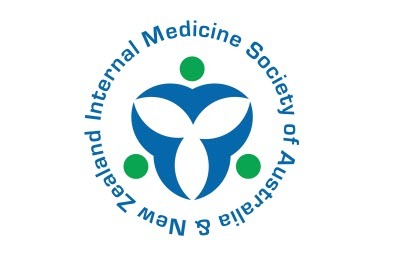Recommendations
Tests, treatments, and procedures for healthcare providers and consumers to question
Australia's peak health professional colleges, societies and associations have developed lists of recommendations of the tests, treatments, and procedures that healthcare providers and consumers should question.
Each recommendation is based on the latest available evidence. Importantly, they are not prescriptive but are intended as guidance to start a conversation about what is appropriate and necessary.
As each situation is unique, healthcare providers and consumers should use the recommendations to collaboratively formulate an appropriate healthcare plan together.
Internal medicine
The Thoracic Society of Australia and New Zealand
Visit page
- Do not initiate maintenance inhalers in minimally symptomatic COPD patients with a low risk of exacerbation
- Do not perform a D-Dimer in patients at high risk of pulmonary embolism
- Do not use long term systemic corticosteroids for management of chronic obstructive pulmonary disease (COPD)
- Do not routinely follow-up solid pulmonary nodules smaller than 6 mm detected in low- risk patients
In 2018 The Royal Australasian College of Physicians worked with a Lead Fellow nominated by The Thoracic Society of Australia and New Zealand (TSANZ) to review evidence for 12 paediatric thoracic recommendations on low-value care in paediatric thoracic medicine. These recommendations were the subject of email discussions and deliberation by members of the Paediatric Special Interest Group (SIG) of the TSANZ. They were further discussed at a workshop held at a meeting of the Asia Pacific Society of Respirology in 2017, which included TSANZ members. Based on the feedback provided at this workshop and through email discussions with members of the SIG, four were removed and two of the original 12 were considered for inclusion in the final recommendations with overwhelming support. Members of the Paediatric SIG were then invited to choose three out of the remaining six through an email based poll. This served as the basis for final recommendations, which were further refined and developed through successive drafts based on the input of the Lead Fellow, the results of consultation with other specialty groups and the views of the TSANZ Board.
In 2020 TSANZ worked with RACP’s Policy & Advocacy team as part of the Evolve program to develop a long list of low-value practices and interventions that pertain to the specialty. Through extensive research and redrafting under the guidance of the TSANZ Central Office and members of the TSANZ Board, the list was condensed to the top-5 recommendations for reducing low-value practices in adult thoracic medicine. After several rounds of internal consultations and revisions, the list of recommendations was subject to an extensive review process that involved key College societies with an interest in or professional engagement with thoracic medicine.
Per usual processes, the recommendations were then consulted with other medical colleges through Choosing Wisely Australia. Feedback received in the consultations led to further work and refinements by Policy & Advocacy and TSANZ, which approved these top-5 recommendations.
Internal Medicine Society of Australia and New Zealand
Visit page
- Once patients have become afebrile (non-feverish) and are clinically improving, don’t continue prescribing intravenous antibiotics to those with uncomplicated infections and no high-risk features if they are tolerant of oral antibiotics.
- Avoid medication-related harm in older patients (>65 years) receiving 5 or more regularly used medicines by performing a complete medication review and deprescribing whenever appropriate.
A panel of IMSANZ members produced an initial list of 32 low value tests, treatments and management decisions frequently encountered in general medicine services. This initial list was distributed via e-mail to 350 members of a working group comprising approximately 50 general physicians as well as nurses and allied health professionals who ranked the items in terms of priority and were free to nominate additional items. Based on their responses, the list was condensed to 15 items including three which were not previously listed. These 15 items were the subject of a face-to-face forum of the working group which reached consensus on a final list of 10.
Recommendations on ‘what not to do’ were formulated around these 10 items and a summary of the evidence for each recommendation was prepared. An online survey based on this work was presented to, and approved by, IMSANZ Council. The survey was sent to all IMSANZ members asking respondents to assign a score from 1 to 5 for each recommendation on three criteria: ‘The clinical practice being targeted by this recommendation is still being undertaken in significant numbers’; ‘This recommendation is evidence-based’; and ‘This recommendation is important in terms of reducing harm to patients and/or costs to the healthcare system’. The survey attracted 182 respondents from all across Australia and New Zealand, which was a response rate of 26%. The final top five chosen were the recommendations with the five highest average total scores assigned to them.
Australasian Chapter of Sexual Health Medicine
Visit page
With the assistance of the Royal Australasian College of Physicians as part of Evolve, the Australasian Chapter of Sexual Health Medicine (AChSHM) Council produced and distributed to its membership an online survey. The survey listed 5 examples of clinical practices in sexual health medicine which may be overused, inappropriate or of limited effectiveness in a given clinical context.
Members were asked to comment on these examples and to suggest other low-value practices which may be a sizeable issue in the specialty. Based on the feedback, 8 items were identified for further investigation by AChSHM Council through an evidence review. This resulted in the final list of 5 recommendations which were endorsed by the Council on 15 December 2016.
In July 2018 the Australasian Chapter of Sexual Health Medicine undertook a review of their Top-5 recommendations. Due to changes in evidence, and physician support, recommendation 5 was replaced. The removed recommendation read: “Reconsider the use of nucleic acid amplification testing for gonorrhoea in low-prevalence (i.e. <1% prevalence) populations and people who do not belong to a higher risk group.”